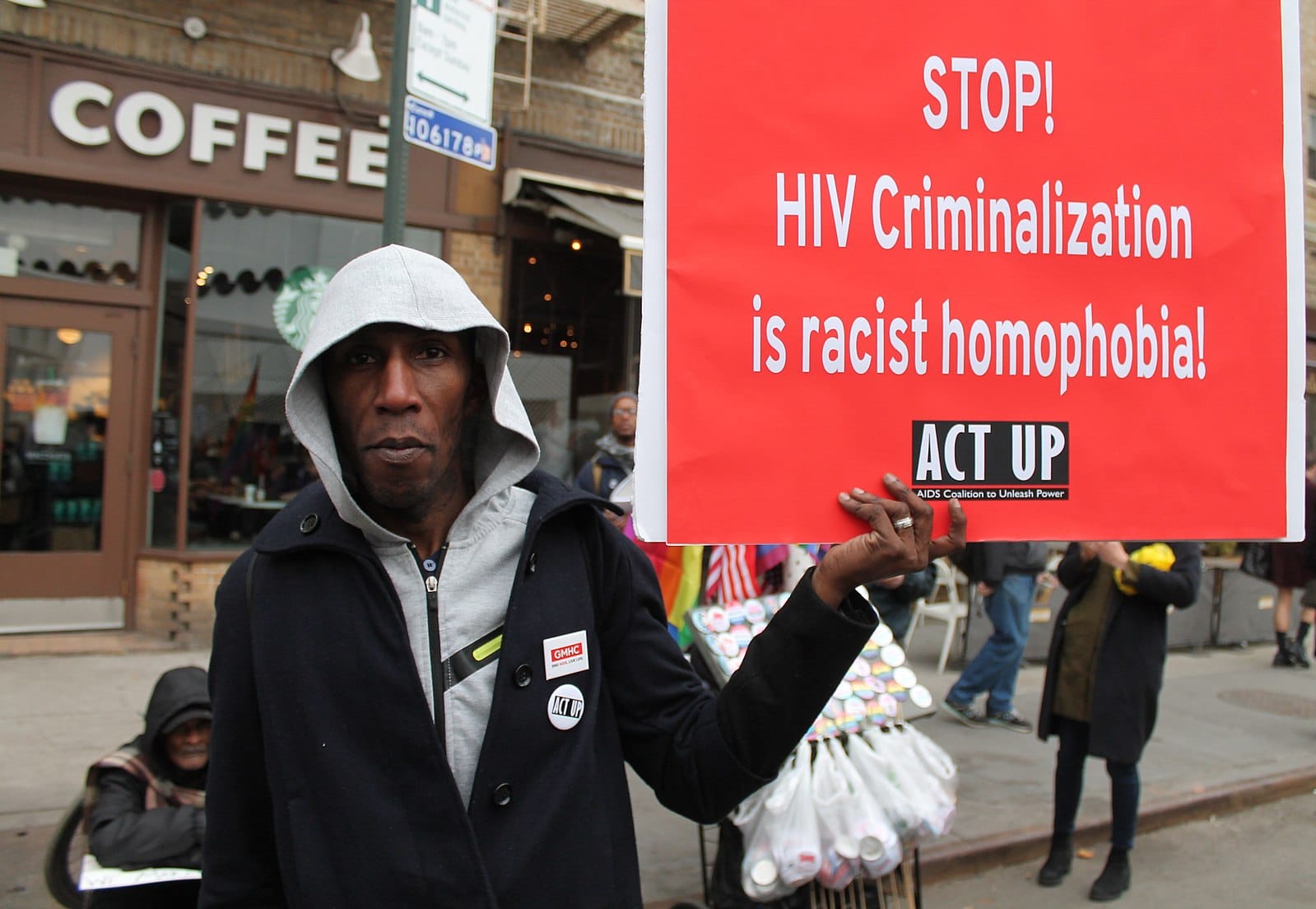The US HIV epidemic is on the decline. But as the coronavirus pandemic multiplies, it unfortunately seems as though governments are drawing on disturbing practices akin to those from the HIV response playbook.
Across the country, governors and mayors are urging residents to stay home, or at least wear face-coverings and gloves when outside. Some law enforcement officials are looking to add teeth to these policies.
Individuals intentionally spreading or risking the spread of coronavirus may be tried under anti-terrorism statutes, advised a March 24 memo, sent by the Deputy Attorney General to law enforcement leaders and obtained by Politico. The day before, a Missouri man had been arrested for posting a video of him asking, “Who is afraid of coronavirus?” at a Walmart and licking merchandise. On the day of the memo’s release, he was charged with making a terrorist threat.
On the following day, March 25, a New Jersey Man was arrested and charged with making a terrorist threat after coughing near a grocery store employee and then telling her he had the virus. There are numerous other cases of criminal charges being brought against people allegedly attempting to spread the virus, including a Connecticut doctor issued a “breach of peace” summons and a New Jersey defendant charged with “causing a false public alarm.”
Some HIV organizations are concerned about criminalizing coronavirus. HIV Justice is “warn[ing] law- and policymakers against the temptation to use the criminal law or other unjustified and disproportionate repressive measures in relation to COVID-19,” the organization wrote in a March 25 statement. “These measures can be expected to have a devastating impact on the most vulnerable in society.”
For them, a punitive response to an epidemic—and its targeting of marginalized people—is all too familiar. Nineteen states have laws on the books that criminalize people living with HIV for not disclosing their status to partners or medical personnel—even if transmission did not occur or if protection was used. In Georgia and Florida, black men are more likely to be convicted of an HIV-related crime than white men, the Williams Institute has found, and sex workers make up the vast majority of HIV-related cases in California.
In the context of the global pandemic, many marginalized people are being punished for not abiding by quarantine policies.
Queer men have already seen such criminalization. In hard-hit Spain, a tight lockdown has seen police intervention in public health matters. On March 20, eight men were charged with “crimes against public health” after gathering in an apartment, allegedly to throw a chemsex party.
Working-class people have also been caught in the crosshairs of punitive government responses. On April 2, Philippines President Rodrigo Duterte threatened to have low-income workers protesting lack of government aid—and any others deemed in violation of the quarantine—shot dead by law enforcement. Duterte’s longstanding use of extrajudicial drug-war executions showed this was no idle threat. Just a few days later, on April 5, a farm worker was killed by police after an altercation over his not wearing a protective mask.
Based on long experience of campaigning to end HIV criminalization, HIV Justice warns that punishing individuals for how they navigate an epidemic has “deleterious consequences” for “both human rights and public health.”
These may include “further stigmatiz[ing] people who have the virus, dissuad[ing] people from getting tested and destroy[ing] trust between the government and communities,” wrote UNAIDS in a March 20 policy recommendation paper.
“[A]s we have seen from the solidarity, support and power of communities in the HIV epidemic and already in communities responding to the COVID-19 pandemic, the response must not be fear and stigma,” wrote UNAIDS. “Our response to COVID-19 must be grounded in the realities of people’s lives and focused on eliminating the barriers people face in being able to protect themselves and their communities.”
Photograph of a protestor holding a sign in 2017 by Elvert Barnes via Wikimedia Commons/Creative Commons





Show Comments